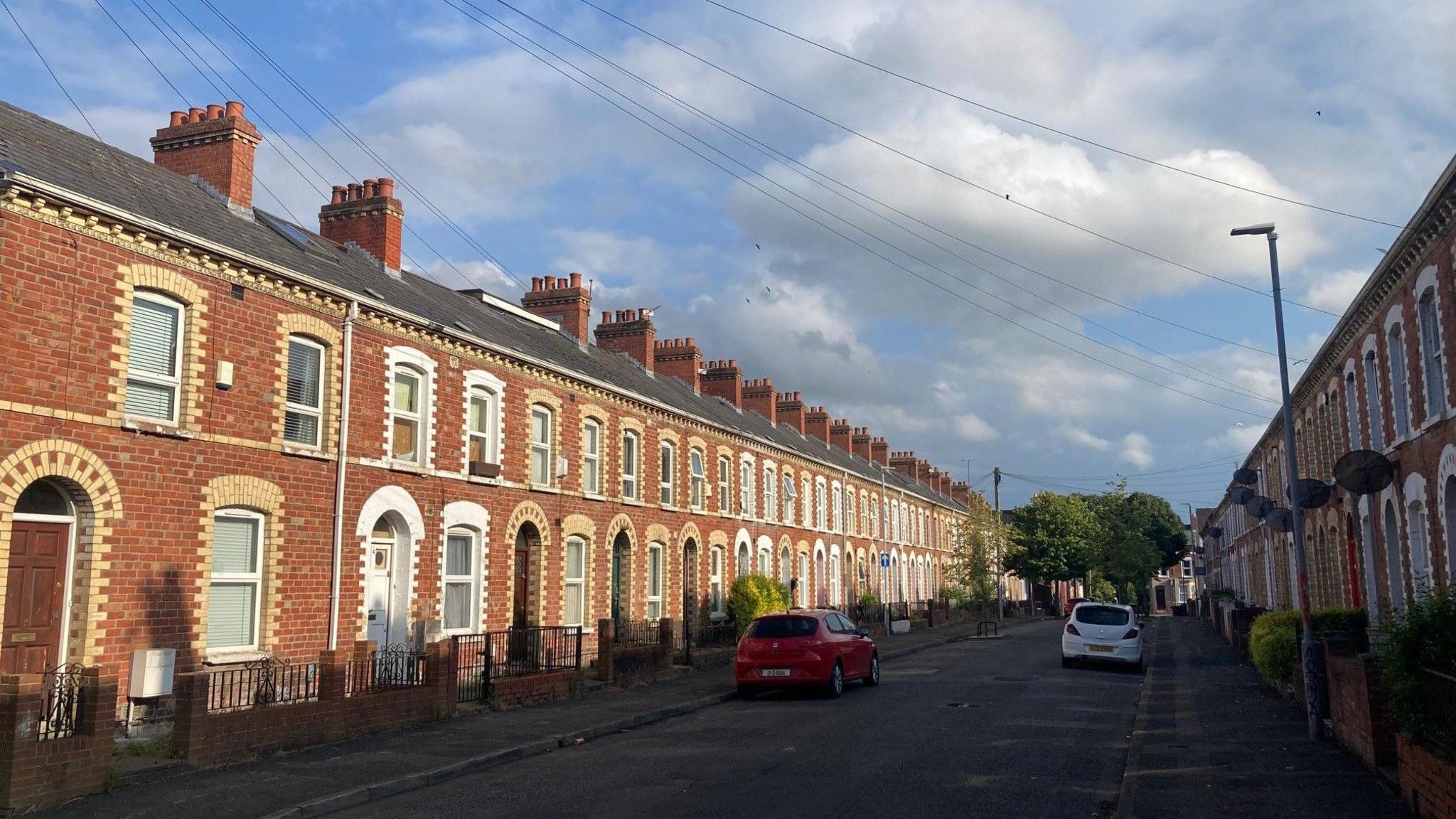New rental property smoke alarm laws come into force

A street in the Holylands mainly used for private student housing
- Published
Northern Ireland's new smoke alarm laws for rented properties have come into force.
The new laws include a requirement for a smoke detector in the room most used by occupants for "general daytime living purposes".
Already existing tenancies must meet the regulations by 1 December.
Communities Minister Gordon Lyons said the new regulations were designed to keep people safe.
The laws will include new requirements for smoke, heat and carbon monoxide alarms in private rental properties.
From 1 September, there will be a legal requirement for smoke alarms to be installed in the room which is most frequently used by the occupants for general daytime living purposes, as well as every circulation space on each storey.
There will also be a requirement for a heat alarm to be installed in every kitchen and a carbon monoxide alarm to be installed in any room or circulation space which contains a fixed combustion appliance or a flue.
In addition to this, the new laws will require smoke and heat alarms to be linked.
The law comes into place as many students in Northern Ireland move into their new rented properties.
What is a heat alarm?
Heat alarms work differently to smoke alarms.
While a smoke alarm is designed to detect smoke, a heat alarm detects when there is a significant increase in temperature, and may help to indicate that a fire is starting, or is about to start.
Heat detectors are sometimes used in rooms where highly flammable substances or chemicals are stored. They can also be useful in areas where there may be high levels of smoke and dust.
New laws 'too late'
Josiah Johnston is a student who lives in the Holylands area of Belfast, a part of the city predominantly used for private rental student housing.
He told BBC News NI that the smoke detectors in the house he lived in were not working.
"If there was a fire going off, we wouldn't know. It's a safety hazard," he said.
Jenny Steele, who also lives in the Holylands, agrees.
She said that she has always found housing in the area wasn't "up to scratch" when it came to fire safety.
However, due to the cost of student accommodation, she felt she had little choice.
Mr Johnston said the new law was "a good thing", but had arrived too late.
"A lot of fires that have happened in the Holylands would have been stopped by this legislation," he said.

Josiah says the new regulations have arrived too late
The communities minister said the new regulations were designed to protect the rights and well-being of tenants.
"In addition, they also aim to provide a clear framework for landlords, outlining their responsibilities in relation to properties and tenants," Mr Lyons said.
“There is a clear link between a proper alarm system and improved safety. An early warning of potential danger can help to reduce injuries and ultimately save lives.
"It can also serve to limit damage to a property as a result of fire.”
Northern Ireland Fire & Rescue Service Group Commander Geoff Somerville said requiring the installation of smoke, heat and carbon monoxide alarms was meant to reduce the risk of fire and any consequent loss of life, injury or damage to properties.
He said national fire safety statistics showed fires in properties with alarms were discovered much sooner - fewer than five minutes on average after starting.
“The number of fatalities from fire can be avoided if smoke detectors are installed," he said.
"The fatality rate in premises in which there is no working smoke detector is between two and three times the fatality rate in fires in premises in which a smoke detector is present and functions correctly.”